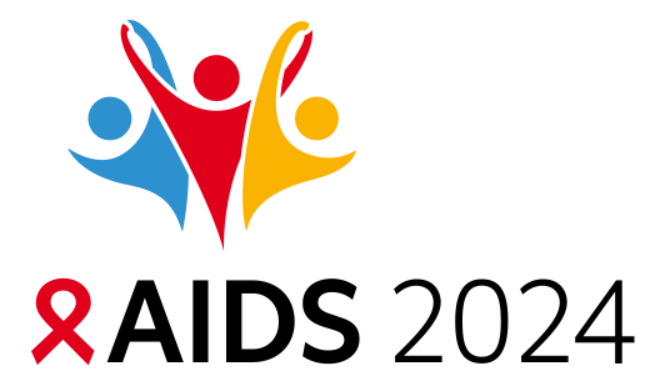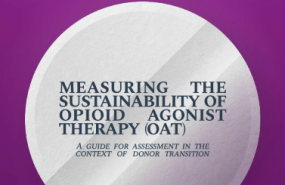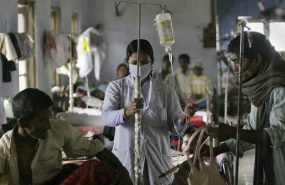Status of transitions from Global Fund support in the EECA region
- 23.04.2018 18:44
- Post Views: 1,197
Eastern Europe and Central Asia (EECA) is one of two regions, along with Latin America and the Caribbean, where planning for the transition away from Global Fund support is most advanced. In this article, we provide an overview of the transition status of HIV, TB and malaria components of the countries in the EECA.
The STC Policy
In April 2016, the Global Fund’s Board adopted a Sustainability, Transition and Co-Financing (STC) Policy, which outlines (a) the high-level principles for engaging with countries on the long-term sustainability of Global Fund–supported programs, as well as (b) a framework for ensuring successful transitions from Global Fund financing.
According to the STC Policy, all countries, regardless of their economic capacity and disease burden, should be planning for sustainability and embedding sustainability considerations within national strategies, and program and grant design and implementation. For countries with high disease burdens and fewer resources, the STC Policy emphasizes the need for domestic investments to build resilient and sustainable systems for health and move towards universal health coverage. As countries move along the development continuum –– either by increasing economic resources or lowering disease burden –– expectations are for greater transition planning, as well as for co-financing targeting specific transition challenges and programming for key populations.
The Global Fund’s Eligibility Policy allows components that become ineligible from one allocation period to the next to receive one allocation of transition funding “for priority transition needs.” This applies to most country components with existing grants, but there are exceptions. Components are not eligible for transition funding if the country:
- becomes categorized as high-income; or
- is a member of the G-20, moves to upper-middle-income (UMI) status and has less than an extreme disease burden; or
- becomes a member of the Organization for Economic Cooperation and Development’s (OECD) Development Assistance Committee (DAC).
For components eligible for transition funding, the STC Policy states that the funding request should focus exclusively on activities that are included in the country’s transition work plan and that are essential to achieving, by the end of the grant, full domestic funding and management of activities currently funded by the Global Fund.
The clause concerning transition funded was added to the Fund’s eligibility policy in November 2013. (The policy was called the Eligibility and Counterpart Financing Policy at the time.)
For the purposes of this overview, we have divided components into the following categories:
- components that did not receive transition funding because they were already ineligible when the policy on transition funding was adopted;
- components receiving transition funding for the 2017–2019 allocation period;
- other components that are projected to transition away from Global Fund support by 2025;
- other components that have started transition planning; and
- components that still have time for long-term transition planning.
Components that did not receive transition funding because they were already ineligible when the policy on transition funding was adopted
A number of components are included in this category. Below, we list those that were active as recently as 2015.
Bosnia and Herzegovina HIV. The last rounds-based HIV grant ended on 30 September 2016, after which it went through a grant closure period. The closure period continued into 2017. At the end of 2017, the Global Fund Secretariat, using flexibilities under the STC Policy, exceptionally approved to continue the grant closure period through 31 November 2018. This will allow the continuation of a limited number of activities to facilitate the transition of prevention and care and support services for key populations in Bosnia and Herzegovina.
Bosnia and Herzegovina TB. The end date for the last TB grant was 31 July 2016.
Macedonia HIV. The last rounds-based HIV grant came to an end in December 2017. This was after a 12-month non-costed extension of the grant was made using flexibilities under the STC Policy to help ensure a responsible transition of HIV activities, and to support ongoing efforts at the country level to advocate for increased domestic resources for key and vulnerable populations.
Macedonia TB. The last TB grant formally ended in September 2016. There was a non-costed grant extension to 31 March 2017 to support the country to transition from Global Fund support.
(Both Macedonia and Bosnia and Herzegovina were ineligible for Global Fund support as early as 2010 because they were categorized as upper-middle-income (UMI) countries and had less than a high disease burden for both HIV and TB. Both countries benefited from a previous policy provision which allowed them to still be considered as lower-middle-income (LMI) countries.
Russian Federation HIV. The last HIV grant ended in December 2017, with a closure period expected to end in June 2018. This was a non-CCM grant under the NGO Rule.
Serbia TB. The last rounds-based TB grants ended on 31 March and 30 June 2015.
Components receiving transition funding in 2017–2019
The following components became ineligible for regular funding after the 2014–2016 allocations were announced and were therefore eligible to receive transition funding for 2017–2019:
Albania HIV. This component became ineligible for regular funding in 2015 and was subsequently allocated $1.1 million in transition funding for 2017–2019.
Albania TB. This component became ineligible for regular funding in 2015 and was subsequently allocated $500,000 in transition funding for 2017–2019.
Turkmenistan TB. This component became ineligible for regular funding in 2016 and was subsequently allocated $4.0 million in transition funding for 2017–2019.
Note: Bulgaria has an existing TB grant from the 2014–2016 allocation period which is scheduled to end in September 2018. The TB component became ineligible for further regular funding in 2016. Bulgaria TB should have been eligible to receive transition funding for 2017–2019. However, Aidspan was told by the Global Fund Secretariat that in June 2015 the existing TB grant was developed and negotiated with the understanding that Bulgaria would not receive further funding from the Global Fund, and that the necessary measures for a successful transition to domestic funding would be adopted during implementation of the existing grant (see GFO article).
Other components projected to transition by 2025
To support countries in their planning, the Global Fund produced a list of components projected to transition fully from Global Fund financing by 2025 due to changes in income categorization and/or disease burden classification. (The list assumes current eligibility criteria will continue to apply.) The following EECA components are on this list:
Kosovo HIV and TB. Both components are projected to become ineligible in 2020–2022 based the country’s anticipated move to upper-middle-income status and may receive transition funding in 2023–2025.
Kazakhstan HIV and TB. The country is projected to move to the high-income category during 2023–2025. Both components will not be entitled to receive transition funding because high-income countries are ineligible across the board.
Armenia HIV and TB. According to the recently published Eligibility List 2018, Armenia is newly categorized as a UMI country. As a result, both components are now eligible to receive a final allocation of transition funding in 2020-2022. (See GFO article on the new eligibility list.)
Other components that have started transition planning
The Global Fund expects all eligible UMI countries –– and all eligible LMI countries with components whose disease burden is classified as low or moderate –– to begin sustainability and transition planning, or to build upon existing planning, during the 2017–2019 period. There are six countries in the EECA with components that are in this cohort and that are not already on the list of components projected to transition by 2025: Azerbaijan (HIV, TB), Belarus (HIV, TB), Georgia (HIV, TB), Montenegro (HIV), Serbia (HIV) and Romania (TB). These countries are already working on transition. For example, both Belarus and Georgia have already developed formal transition plans and have started to implement them (for Belarus, see GFO article).
There are no active Global Fund malaria grants in the EECA region.
Components that still have time for long-term sustainability and transition planning
While it is not possible to predict with certainty transition timelines, components from low-income countries (regardless of disease burden) and components from LMI countries with a disease burden classification of high or above are not expected to transition from the Global Fund support imminently. But under the STC Policy, they are expected to focus on long-term sustainability planning by supporting the development of robust national health strategies, disease-specific strategic plans and health financing strategies.
There are no low-income countries in EECA region. However, components from the following LMI countries fall under this category: Kyrgyzstan (HIV, TB), Moldova (HIV, TB), Tajikistan (HIV, TB), Uzbekistan (HIV, TB), Ukraine (HIV, TB).
Summary table
The following table provides a list of the components in the various categories discussed above.
Table: Components in the various categories of transition from Global Fund support
| Ineligible before the policy on transition funding was adopted * | Receiving transition funding in 2017–2019 | Projected to transition by 2025 | Started transition planning | Still have time for long-term sustainability and transition planning |
| Bulgaria HIV B&H HIV, TB Macedonia HIV Russia HIV Serbia TB |
Albania HIV, TB Turkmenistan TB |
Armenia HIV, TB Kosovo HIV, TB Kazakhstan HIV, TB |
Azerbaijan HIV, TB Belarus HIV, TB Georgia HIV, TB Montenegro HIV Serbia HIV |
Kyrgyzstan HIV, TB Moldova HIV, TB Tajikistan HIV, TB Uzbekistan HIV, TB Ukraine HIV, TB |
* In the first column, only components still active as recently as 2015 are listed.
Transition in reverse: Components that regained their eligibility
There are three countries in EECA region whose HIV components were newly classified as eligible on the Eligibility List 2017 after meeting eligibility criteria for two consecutive eligibility determinations, and which received allocations for the 2017–2019 period. These components are as follows:
Kazakhstan HIV. This component became ineligible for Global Fund support in 2011 because it was a UMI country with only a moderate disease burden. However, its HIV disease burden classification changed to high on the Eligibility List 2016.
Montenegro HIV. Montenegro became ineligible for both HIV and TB in 2008 when it moved up to UMI status and its HIV and TB components had less than a high disease burden. Both components “hung on” until Round 9 in 2009 because they benefited from a previous policy provision (which is no longer exists) which allowed them to “keep” their LMI status for an extra year. In 2016, Montenegro’s HIV disease burden classification was changed to “high.”
Serbia HIV. As a UMI country, Serbia’s funding ended abruptly after its HIV burden was lowered to moderate. Its HIV burden classification went back up to high in 2015.
Both Montenegro and Serbia were told, via their allocation letters, that their allocations for 2017–2019 were conditional on their funding requests focusing on key affected populations. Specifically, the letters stated that the allocations “are dependent on the functionality, in form and substance acceptable to the Global Fund, of a social contracting mechanism for engagement of non-governmental organizations through which the … governmental institution(s) and the Global Fund will finance HIV prevention, care and support activities.”
Source of the original content: http://www.aidspan.org/gfo_article/status-transitions-global-fund-support-eeca-region
Related News
Measuring the sustainability of opioid agonist therapy (OAT) – a guide for assessment in the context of donor transition
This Guide was initiated by the Eurasian Harm Reduction Association to provide countries with an approach and tools to assess their progress in building the sustainability of opioid agonist treatment (OAT) within the context of donor transition. This material builds upon previous assessment frameworks and experiences in measuring sustainability and transition readiness in the areas […] Read moreGlobal Fund Strategy Development – Open Consultation Questions
COVID-19 is radically altering global health, politics and economics, and the impact upon programs fighting HIV, TB and malaria will likely be tremendous. The new pandemic could completely derail our vast efforts of the past 20 years. At the same time, it has galvanized public awareness on global health security in a way that builds […] Read moreGlobal Fund Technical Brief Tuberculosis, Gender and Human Rights
The purpose of this technical brief is: to assist Global Fund applicants to consider how to include programs to remove human rights and gender-related barriers to tuberculosis prevention, diagnosis and treatment services within funding requests, and to help all stakeholders ensure that TB programs promote and protect human rights and gender equality. Post Views: 681 Read moreEECA Region Space Schedule during AIDS 2024

Welcome to the EECA Region Space at the Global Village during AIDS 2024 Conference! Our dedicated space at the Global Village is designed to highlight the unique perspectives and experiences of the EECA region, fostering collaboration and inspiring action. Join us for a series of engaging sessions, workshops, and presentations that will explore a wide range of topics.
Services for migrants and refugees from Ukraine – HIV/TB care with a focus on key populations
Due to the increasing flows of refugees from Ukraine because of Russia’s invasion of Ukraine, the EECA Regional Platform created a spreadsheet to fill contacts details of face-to-face and online services for refugees and migrants (with a focus on HIV/TB care and key population groups).
Regional Platform – EECA
This web-resource is a part of new regional communication and coordination project “Regional Civil Society and Community Support, Coordination and Communication Platform - EECA”, implemented by Eurasian Harm Reduction Association (EHRA).
Tags
See also
-
Events with Global Fund Speakers at AIDS 2024 17.07.2024 14:43
-
EECA Region Space Schedule during AIDS 2024 12.07.2024 11:14
-
Two Requests for Proposals from the Global Fund 04.07.2024 11:42
-
EECA’s Regional Platform monthly Newsletter #6, July 2024 04.07.2024 11:28







